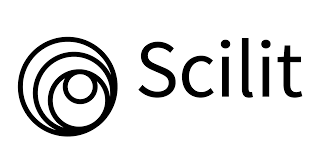INDIGENOUS ECUADORIANS’ CHALLENGES AND ATTEMPTS TO COMBAT EXTRACTIVE INDUSTRIES: A HUMAN RIGHTS-BASED APPROACH
DOI:
https://doi.org/10.38043/jids.v6i2.3693Keywords:
dilemma, duty-bearers, nature, rightsAbstract
Ecuador is remarkably known as the first country that granted natural constitutional rights. However, it still does not guarantee its nature preservation. This Latin American country is also highly dependent on oil. The dilemma of the continuity of the extractive industries emerged in the discussion. This influences indigenous peoples' unmet rights, especially when they are the ones who are directly affected by climate change as forest dwellers. To defend their territories, indigenous people in Ecuador do not stand still. Indigenous rights and sovereignty over their lands are becoming more widely recognized, which may prevent the Amazon from further damage. This research aims to investigate the actions and challenges that Indigenous Ecuadorians must face in combatting extractive industries. The authors use a descriptive qualitative approach and collect data from library research. This study uses a human rights-based approach to analyze the content of this paper. As a result, this research found that Ecuador’s government which plays the duty-bearer is failing and lacking the obligations to protect indigenous rights. On the other side, the indigenous people in Ecuador are thriving to defend their rights by reflecting on the human rights-based approach's five principles: participation, accountability, non-discrimination and equality, empowerment, and legality. Indigenous peoples and environmental groups are not enabling misery or hunger by supporting the environmentally practical measure.
Downloads
References
Book
Amazon Sacred Headwaters Initiative. (2021). BIOREGIONAL PLAN 2030 (Issue September).
Anton, H., & Annika, L. (2015). Introduction to The Human Rights Based Approach. UNICEF.
Burger, Julian. (2014). Indigenous Peoples, Extractive Industries and Human Tights: In-Depth Analysis. European Parliament.
McNabb, D. E. (2015). Research Methods for Political Science. In Research Methods for Political Science (Second Edi). Routledge.
Journal article
Gandhi, J. (2015). Holding Trees Hostage: Ecuador’s Attempt to Share the Costs of Preserving the Amazon. Sais Europe Journal of Global Affairs, 52–62.
Pratiwi, T. S. (2017). The Development of Indigenous People’s Rights to Their Land Through Political Participation and International Norm in Latin America. Jurnal Transformasi Global, 4, 1–14.
Torre, C. de la. (2018). Latin America’s Shifting Politics: Ecuador After Correa. Journal of Democracy, 29(4), 77–88.
Journal article with DOI
Akchurin, M. (2015). Constructing the Rights of Nature: Constitutional Reform, Mobilization, and Environmental Protection in Ecuador. Law and Social Inquiry, 40(4), 937–968. https://doi.org/10.1111/lsi.12141
Bernal, A. M. (2021). Ecuador’s Dual Populisms: Neocolonial Extractivism, Violence and Indigenous Resistance. Thesis Eleven, 164(1), 9–36. https://doi.org/10.1177/07255136211025220
Besson, S. (2015). The Bearers of Human Rights’ Duties and Responsibilities for Human Rights: A Quiet (R)evolution? Social Philosophy and Policy, 32(1), 244–268. https://doi.org/10.1017/S0265052515000151
Broberg, M., & Sano, H. O. (2018). Strengths and Weaknesses in A Human Rights-based Approach to International Development – An Analysis of A Rights-based Approach to Development Assistance Based on Practical Experiences. International Journal of Human Rights, 22(5), 664–680. https://doi.org/10.1080/13642987.2017.1408591
Etchart, L. (2017). The Role of Indigenous Peoples in Combating Climate Change. Palgrave Communications, 3(17085), 1–4. https://doi.org/10.1057/palcomms.2017.85
Lalander, R., Lembke, M., & Peralta, P. O. (2019). Political economy of state-indigenous liaisons: Ecuador in times of Alianza PAIS. European Review of Latin American and Caribbean Studies, 108(108), 193–220. https://doi.org/10.32992/ERLACS.10541
Picq, M. L. (2018). Vernacular Sovereignties: Indigenous Women Challenging World Politics. In Vernacular Sovereignties. https://doi.org/10.2307/j.ctt20krzcq
Thornberry, P. (2012). The UN draft Declaration on the Rights of Indigenous Peoples. In Indigenous Peoples and Human Rights (pp. 370–396). Manchester University Press. https://doi.org/10.7228/manchester/9780719037931.003.0016
Walker, W., Baccini, A., Schwartzman, S., Ríos, S., Oliveira-Miranda, M. A., Augusto, C., Ruiz, M. R., Arrasco, C. S., Ricardo, B., Smith, R., Meyer, C., Jintiach, J. C., & Campos, E. V. (2014). Forest Carbon in Amazonia: The Unrecognized Contribution of Indigenous Territories and Protected Natural Areas. Carbon Management, 5(5–6), 479–485. https://doi.org/10.1080/17583004.2014.990680
Journal article on website
Lambert, V. a., & Lambert, C. E. (2013). Qualitative Descriptive Research: An Acceptable Design. Pacific Rim International Journal of Nursing Research, 16(4), 255–256. http://antispam.kmutt.ac.th/index.php/PRIJNR/article/download/5805/5064
Newspaper article on website
Alexander Zaitchik. (2019, February 2). Ecuador’s Ceibo Alliance Offers an Antidote to Reckless Industrialism. Sierra Club. https://www.sierraclub.org/sierra/ecuador-s-ceibo-alliance-offers-antidote-reckless-industrialism
Antonio José Paz Cardona. (2019, February 11). Ecuador’s indigenous Cofán Hail Court-Ordered End to Mining on Their Land. Mongabay. https://news.mongabay.com/2019/02/ecuadors-indigenous-cofan-hail-court-ordered-end-to-mining-on-their-land/
Astrid Arellano. (2022, May 6). “Indigenous people are fighting to protect a natural equilibrium”: Q&A with Patricia Gualinga. Mongabay. https://news.mongabay.com/2022/05/indigenous-people-are-fighting-to-protect-a-natural-equilibrium-qa-with-patricia-gualinga/
BBC News. (2013, August 16). Protests as Ecuador Approves Oil Drilling in Amazon. BBC News. https://www.bbc.com/news/av/world-latin-america-23723644
David Hill. (2013, October 15). Why Ecuador’s President Is Misleading The World on Yasuni-ITT. The Guardian. https://www.theguardian.com/environment/andes-to-the-amazon/2013/oct/15/ecuador-president-misleading-yasuni
Kimberly Brown. (2018, March 22). Indigenous Amazonian Women Demand End to Extraction. Mongabay. https://news.mongabay.com/2018/03/indigenous-amazonian-women-demand-end-to-extraction/
Latoya Abulu, & Laurel Sutherland. (2021, December 3). Indigenous Groups Unveil Plan to Protect 80% of The Amazon in Peru and Ecuador. Mongabay. https://news.mongabay.com/2021/12/indigenous-groups-unveil-plan-to-protect-80-of-the-amazon-in-peru-and-ecuador/
Website
Alex Emery. (2022, January 3). Commodities 2022: Ecuador Oil Sector to See Busy Year, Hopes to Attract Private Investment. S&P Global Commodity Insights. https://www.spglobal.com/commodity-insights/en/market-insights/latest-news/oil/010322-commodities-2022-ecuador-oil-sector-to-see-busy-year-hopes-to-attract-private-investment
Amazon Frontlines. (2022, January 28). Ecuador’s Supreme Court Makes Historic Ruling Recognizing Indigenous Right to Consent Over Oil and Mining Projects. Amazon Frontlines. https://www.amazonfrontlines.org/chronicles/ecuador-supreme-court-recognizes-indigenous-right-to-consent-over-oil-and-mining/
Andrea De Lulio. (2021, June 4). Moving past the Pro-Correa / Anti-Correa divide in Ecuadorian politics: The Indigenous Pachakutik Party As A Third Force. Prif Blog. https://blog.prif.org/2021/06/04/moving-past-the-pro-correa-anti-correa-divide-in-ecuadorian-politics-the-indigenous-pachakutik-party-as-a-third-force/
Christina Noriega. (2021, October 22). How Mujeres Amazónicas is Protecting the Land. Refinery 29. https://www.refinery29.com/en-us/2021/10/10712803/mujeres-amazonicas-interview
Eric Toussaint. (2021, April 14). Ecuador: From Rafael Correa to Guillermo Lasso via Lenin Moreno. CADTM. https://www.cadtm.org/Ecuador-From-Rafael-Correa-to-Guillermo-Lasso-via-Lenin-Moreno
Juanita Rico. (2022, March 8). Ecuador Gives Indigenous People – and Nature – A Big Win. OpenDemocracy. https://www.opendemocracy.net/en/democraciaabierta/ecuador-amazon-indigenous-ai-cofan/
Kevin Koenig. (2022, February 15). Indigenous Rights Victories Deal a Major Blow to Oil and Mining Expansion. Amazon Watch. https://amazonwatch.org/news/2022/0215-indigenous-rights-victories-at-ecuadors-high-court-deal-blow-to-governments-plans-to-expand-oil-and-mining
Leila Salazar-López. (2018, August 10). Sarayaku Launches Living Forest Proposal – ¡Viva Kawsak Sacha! Amazon Watch. https://amazonwatch.org/news/2018/0810-sarayaku-launches-living-forest-proposal-viva-kawsak-sacha
Nicolas Mainville. (2019). Deforestation in the Ecuadorian Amazon: 50 years of oil-driven ancestral land invasion. Amazon Frontlines. https://www.amazonfrontlines.org/chronicles/deforestation-ecuador-amazon/
Rhett A. Butler. (2020, June 4). The Amazon Rainforest: The World’s Largest Rainforest. Mongabay. https://rainforests.mongabay.com/amazon/
Samara Almonte, & Hernandez, M. (2022, January 17). How Indigenous Land Defenders Are Leading The Fight Against Extraction in Ecuador. Shado Magazine. https://shado-mag.com/act/how-indigenous-land-defenders-are-leading-the-fight-against-extraction-in-ecuador/
Sofía Jarrín. (2021, July 1). Human Rights and Land Rights Defenders Under Threat in Ecuador. Amazon Watch. https://amazonwatch.org/news/2021/0701-human-rights-and-land-rights-defenders-under-threat-in-ecuador
?
Website Document
Carlson, E. V. H. (2020). Indigenous Communities Versus Oil Companies: Identifying Trends in Tactics and Success of Indigenous-Led Anti-Petroleum Movements in the Ecuadorian Amazon. In Independent Study Project (ISP) Collection (Issue 3322). https://digitalcollections.sit.edu/isp_collection/3322
Damonte, G. (2012). Rethinking the Conservation vs. Extraction Dilemma. http://www.eisourcebook.org/cms/ELLA Case Study, Yasuni-ITT oil fields.pdf.
Ecuador’s National Coalition of Women. (2020). Shadow Report to the CEDAW Committee Joint Contribution. September. https://tbinternet.ohchr.org/Treaties/CEDAW/Shared Documents/IRQ/INT_CEDAW_CSS_IRQ_37264_E.docx
Global Education Monitoring. (2017). Accountability from A Human Rights Perspective: The Incorporation and Enforcement of The Right to Education in The Domestic Legal Order. http://unesdoc.unesco.org/images/0025/002595/259560e.pdf
Minority Rights Group International. (2019). Minority and Indigenous Trends 2019. In Focus on Climate Justice. https://minorityrights.org/publications/minority-and-indigenous-trends-2019/
Moore, O. (2021). Ecuador’s Amazon, Rights of Nature, and the Dilemma of the 2008 Constitution. WWU Honors Program Senior. https://cedar.wwu.edu/wwu_honors/480
Severns, C. (2020). The Fight to Protect The Amazon: The Environmental Discourse of the Waorani Resistance Movement. In Lund University. http://lup.lub.lu.se/student-papers/record/9011304
Torán, J. J. G. (2019). When the Forest Screams: The Rights of Nature and Indigenous Rights as a Mutually Reinforcing Resistance Platform for the Indigenous Peoples of the Ecuadorian Amazon [University of Deusto]. http://repository.gchumanrights.org/handle/20.500.11825/1827
U.S. Energy Information Administration. (2021). Country Analysis Executive Summary: Ecuador (Issue September). https://www.eia.gov/international/content/analysis/ countries_long/Ecuador/ecuador.pdf
Downloads
Published
How to Cite
Issue
Section
License
Copyright (c) 2022 M. Syaprin Zahidi

This work is licensed under a Creative Commons Attribution-NonCommercial 4.0 International License.

















